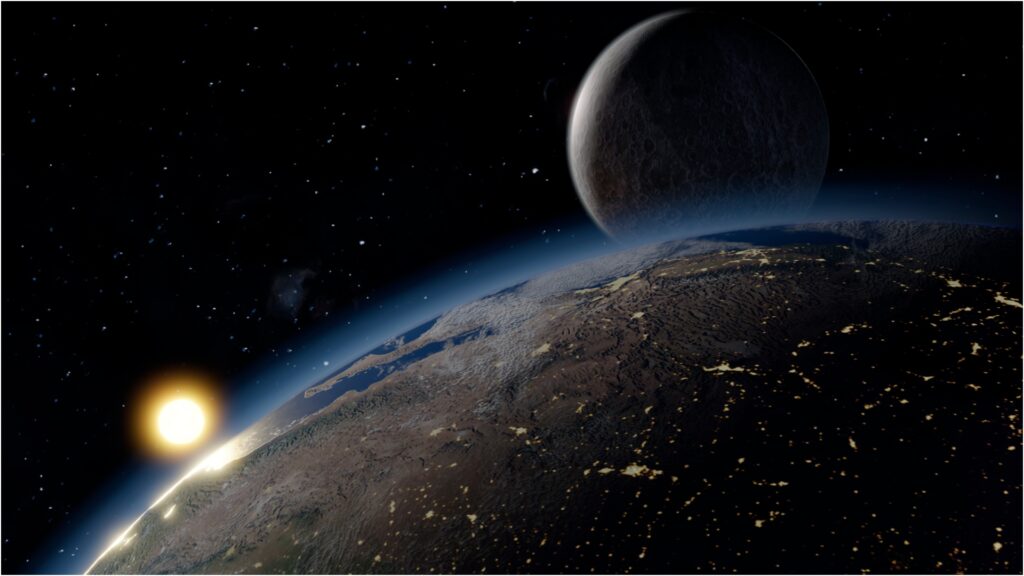Scientists have discovered a new planet near Earth, and now they are researching to find out as many details about it as possible. Where was it found and what name was given to it?
A new planet has been discovered near Earth
The recently discovered new planet is close to Earth, and a year lasts three Earth days here, according to researchers cited by The Independent. It has at least half the mass of Venus.
Astronomers say the planet orbits Barnard’s star, the closest star to the Sun. Therefore, the name given to it is Barnard b. Moreover, it was found that there could be three more exoplanets in various orbits around the star.
The details were made in a study published in the journal Astronomy & Astrophysics. The research took place over five years, with observations made using ESO’s telescope (VLT) at the Paranal Observatory in Chile.
:format(webp):quality(80)/wp-content/uploads/sfm/2024/10/1666192484/sfm66fd8a378b7e8-mzmyjnpjptemagfzad02yza1njgwnwjmzjg2mzc5nge5ytnhyjuwndgymgewoq.thumb-t.jpg)
The latest polls for the White House. Who’s leading nationally and what’s the score in key states
“We were always confident that we would find something”
All this time, scientists have been looking for clues in the star’s habitable or temperate zone. Barnard b is 20 times closer to the star than Mercury is to the Sun.
It would also have a surface temperature of 125 degrees Celsius, according to the study. “Barnard b is too close to the host star, closer than the habitable zone.
Although the star is about 2,500 degrees cooler than our Sun, it is too hot to support liquid water on its surface.”the researchers reported.
“Even though it took a long time, we were always confident that we would find something”added Jonay González Hernández, researcher at the Instituto de Astrofísica de Canarias in Spain and author of this study.
:format(webp):quality(80)/wp-content/uploads/sfm/2024/10/1627463533/sfm66fd8a2e12290-ptemagfzad03njg1zmm0y2eyntjmytbmodg4zwmwmwfiowy0nzk5oq.thumb-t.jpg)
Carlos Martinez spoke for the first time after Simona Halep kicked him out in just 7 weeks
Barnard’s star is only six light-years away from Earth. It is recognized as the second closest star system, after Alpha Centauri. Thus, the star offers researchers the opportunity to analyze rocky exoplanets.





More Stories
Asteroid That Killed Dinosaurs 66 Million Years Ago Wasn’t Alone, Scientists Determine
“From Tribes to TikTok”: Youth, challenged with science, education and technology. 16 unique days in Braşov
Russian scientists stopped involvement in hypersonic missile development after FSB hunted them as ‘spies’